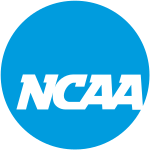Top Qs
Timeline
Chat
Perspective
NCAA Division I men's soccer tournament
College soccer tournament From Wikipedia, the free encyclopedia
Remove ads
The NCAA Division I men's soccer tournament, sometimes known as the College Cup, is an American intercollegiate soccer tournament conducted by the National Collegiate Athletic Association (NCAA), and determines the Division I men's national champion. The tournament was formally held in 1959, when it was an eight-team tournament. Since then, the tournament has expanded to 48 teams, in which every Division I conference tournament champion is allocated a berth. Among the most successful programs, Saint Louis won 10 titles during dynasty years between 1959 and 1973. Indiana has won 8 titles beginning in 1982, whereas Virginia has won 7 titles beginning in 1989.
Although the tournament is frequently referenced as the "College Cup", the NCAA applies the title only to the semifinal and championship rounds of the tournament proper. Since the tournament began, the semifinal and final fixtures have been held at a neutral site predetermined by the NCAA before starting the regular season.
Remove ads
Format
Summarize
Perspective
The NCAA Division I men's soccer tournament is a 48-team, single-elimination tournament. Currently, 23 spots are reserved for the winners of automatic bids.
As of the current 2024 NCAA men's soccer season, the following conferences are expected to be granted automatic qualification:
Each conference determines the format for its conference championship, which determines the school that receives its automatic bid. Many use conference tournaments, although three conferences award the championship and automatic bid to the regular-season champion. The remaining 26 teams receive at-large bids. The at-large teams are selected by a committee consisting of representatives from each of the eight regions the NCAA has divided the country into. The committee uses a number of criteria, the most influential supposedly being the Ratings Percentage Index, a mathematical formula designed to objectively compare the results and strength of schedule of all Division I teams.[2]
The top 16 teams are seeded into the bracket and receive first round byes. The other 32 are grouped by geographical proximity. The first four rounds are played on campus sites, with matches being hosted by the higher seed. The College Cup, comprising the semifinal and final matches, is played at a predetermined site.
Vermont is the current champion, defeating Marshall 2–1 in overtime in the 2024 final.
Remove ads
List of champions
Summarize
Perspective
Below is a complete list of winning teams and finals held:[3]
- Notes
- The University of Connecticut did not adopt "UConn" as its sole athletic brand until 2013.
- This team represented the Brooklyn campus of Long Island University. In 2019, LIU merged the Brooklyn athletic program with the NCAA Division II program of its Post campus. The merged men's soccer team, which now plays as the LIU Sharks, inherited the history and records of the Brooklyn program.
- Title game was suspended due to bad weather conditions, with both teams sharing the title.
- Disqualified at a later time so the title was declared vacated.
- The "Philadelphia College of Textiles & Science", known for sports purposes as "Philadelphia Textile", changed its name to 'Philadelphia University' (PhilaU) in 1999. In 2017, PhilaU merged with Thomas Jefferson University, a healthcare-only institution also in Philadelphia that had no athletic program. The merged university adopted the Thomas Jefferson name and inherited the PhilaU athletic program, which now competes as "Jefferson".
- The University of North Carolina at Charlotte did not adopt its current athletic brand name of "Charlotte" until 2000.
Remove ads
Most successful schools
Team titles
- Notes
- Title game was suspended due to bad weather conditions, with both teams sharing the title.
- Title shared after the final ended in a tie, with no extra time played.
Remove ads
Appearances by team
Summarize
Perspective
Key
- CH National Champion
- RU National Runner-up
- SF Semifinals
- QF Quarterfinals
- 16 Round of 16
- • Second Round
- ◦ First Round
Remove ads
See also
- List of NCAA Division I men's soccer programs
- NCAA Division I men's soccer tournament appearances by school
- NCAA Division II men's soccer tournament
- NCAA Division III men's soccer tournament
- NCAA Women's Soccer Championship
- NAIA national men's soccer championship
- Intercollegiate Soccer Football Association (ISFA) – declared the annual national champion (1927–1958)
- Intercollegiate Association Football League (IAFL) – declared the annual national champion (1911–1926)
- Pre-NCAA Soccer Champions
Remove ads
Highest attendances
The highest recorded attendance for championship games are listed below:[4]
- 22,512 – Saint Louis (5) vs. SIU Edwardsville (1), Busch Stadium, St. Louis Oct. 30 1980
- 21,319 – Wisconsin (1) vs. Portland (0) / Duke (3) vs. Virginia (2), Richmond, Virginia (NCAA semifinals) Dec. 8, 1995
- 20,874 – St. John's (NY) (4) vs. FIU (1), Richmond, Virginia (NCAA final) Dec. 15, 1996
- 20,703 – Wisconsin (2) vs. Duke (0), Richmond, Virginia (NCAA final) Dec. 10, 1995
- 20,269 – St. John's (NY) (2) vs. Creighton (1) / FIU (4) vs. Charlotte (0), Richmond, Virginia (NCAA semifinals) Dec. 13, 1996
- 20,143 – UCLA (2) vs. Virginia (0), Richmond, Virginia (NCAA final) Dec. 14, 1997
- 20,112 – Saint Louis (1) vs. SIU Edwardsville (0), Busch Stadium, St. Louis Nov. 9, 1973
Numbers in parentheses indicate goals scored by participating teams.
Remove ads
References
External links
Wikiwand - on
Seamless Wikipedia browsing. On steroids.
Remove ads


